The decade of the 1960s saw some really, really great movies, which are now regarded as classics of filmmaking. 60s saw the release of famous classics like ‘Psycho’, ‘Lawrence of Arabia’, ‘The Graduate’, ‘The Apartment’ and many more. But apart from the above, the decade also saw a rise in the general quality of international cinema; it was the decade where international cinema started achieving new heights with audacious and innovative filmmaking by the grandmasters of cinema. In this article, we list ten movies of the 60s which are a must watch for any cinema lover.
1. Breathless (1960)
The first film by the legendary French filmmaker Jean Luc Godard, ‘Breathless’, was one of the first films of the French New Wave. It is a highly influential work of art, both cool and daring. ‘Breathless’ was well and truly ahead of its time. Renowned for its brash use of jump cuts, the film was widely praised at the time of its release and is credited to have changed the grammar of narrative structure. However, several critics and film aficionados couldn’t really digest the film’s rebellious tone and to this day, it remains one of the most widely debated and dissected films.
‘Breathless’ is more of an attitude. It’s a film that defined the word cool and set the trend for an entire new generation of filmmakers who would go on to push the boundaries of cinema in ways you had never seen before. To be honest, I myself was put off by the film’s overall style and attitude. But something about it made me think more and more about the style and visual aesthetics. The story, like most Godard movies, is a mere instrument to explore his philosophy on marriage, relationships and society. It is evidently self-indulgent, but that is exactly what makes the film so wildly entertaining. ‘Breathless’ is a film that brilliantly manages to encapsulate the sprawling cinematic vision of Jean Luc-Godard. The final shot of the film speaks volumes and is perhaps one of the most iconic images in cinematic history.
Coming to the performances, both Jean-Paul Belmondo and Jean Seberg are amazing in the lead roles and deliver tone-defining performances. I truly cannot imagine the film without them. It’s one of those magical moments where the actors are just sucked into the vision of the filmmaker. Though ‘Breathless’ may not seem particularly accessible for someone who’s unfamiliar with Godard’s works, I still think it’s the perfect entry point that helps one gain insight into the maverick filmmaker’s mind. Filmmakers like Quentin Tarantino and Wong kar-Wai have cited Godard as a major influence and ‘Breathless’ is one of the master’s many works that inspired these filmmakers to defy the traditions of the art form.
2. Persona (1966)
Ingmar Bergman was one of the most respected and influential auteurs of all time and has created some of the boldest works of cinematic art. In ‘Persona’, he really channeled his inner artist, delivering an almost surreal, wildly imaginative piece of psychological horror which is still talked about by critics and cinephiles across the globe. Due to the sensitive nature of the film, it had to go through many cuts. It is bleak, and utterly hopeless at times – dealing with themes of death, illness and insanity.
‘Persona’ is one of those films that just cannot be comprehended on a single viewing. The way in which it explores the concept of identity is truly remarkable. One clearly see the influence of this film on several modern masterpieces including ‘The Double Life of Veronique’, ‘Mulholland Drive’ and ‘Black Swan’. The movie depicts the relationship between a mute actress and the nurse who’s taking care of her. There seems to be some strange connection between the two women and we gradually see their identities getting merged. A lot of what goes on in the film is left to open interpretation, and it is really hard to explain the relationship between the two women. Perhaps they feel like outcasts from the society and struggle to communicate in a way they’d have liked to; or maybe a simple explanation would be that they’re deeply in love. There are certain emotions that can’t possibly be expressed or defined. And we try to understand them in silences, or tears.
Bergman’s movies are replete with impeccable performances from the cast, and ‘Persona’, arguably, offers the finest of all performances. Bibi Andersson and Liv Ullmann brilliantly manage to get into the skin of the characters. It’s almost frightening to see how much they could embody their characters. They evoke emotions of joy, sensuality, sadness, compassion and fear. It is almost like one single performance. Brilliant, absolutely brilliant.
3. Lawrence Of Arabia (1962)

Technology in cinema has grown by leaps and bounds over last decade or so. But long before the Avengers and Dark Knights of the world, there was one film that set the technological standards for every film that followed it. Yes, we are talking about David Lean’s magnam opus based on the life of T. E. Lawrence, one of Britain’s most renowned figures. It stars Pater O’Toole as Lawrence and chronicles his adventures in the Arab Peninsula during WWI. Right from the get-go, David Lean paints a resplendent moving picture of the infinite desert in all its glory, aided by cinematographer Freddie Young and a gripping score by Maurice Jarre. But it in no way sacrifices emotion for extravagance. At its heart, ‘Lawrence of Arabia’ is a stunning character study of Lawrence – his emotional struggles with the personal violence inherent in war, his own identity, and his divided allegiance between his native Britain and its army and his new-found comrades within the Arabian desert tribes. This wholesome quality makes ‘Lawrence Of Arabia’ one of the most influential films ever to exist.
4. The Man Who Shot Liberty Valance (1962)
Legendary director John Ford was known for classic westerns like ‘The Searchers’, ‘Stagecoach’, and ‘She Wore a Yellow Ribbon’. He took a new turn here and decided to direct the movie in black and white. ‘The Man Who Shot Liberty Valance’ is not so much a Western as it is a nostalgia trip. A man remembers his days in a town he visits after a long time. Featuring some of the best camerawork, a terrific score, and amazing performances by John Wayne and James Stewart, ‘The Man Who Shot Liberty Valance’ is a must watch.
5. Le Samourai (1967)
Any discussion about the noir genre would be incomplete without this powerhouse of a film. Made by another French legend, Jean Pierre Melville, ‘Le Samourai’ is the story of a hitman – a samurai. There is so much to love here. The shockingly authentic looking surveillance techniques, the marvelously shot interrogation scene, and so on. The movie is especially influential because of the brooding camerawork, consistent with the tone of the film, which is ultimately about the complex world of espionage, and how one man – who is on the other side of law – deals with it. It is listed as #39 in Empire Magazine’s Top 100 films of World Cinema.
6. The Lion in Winter (1968)
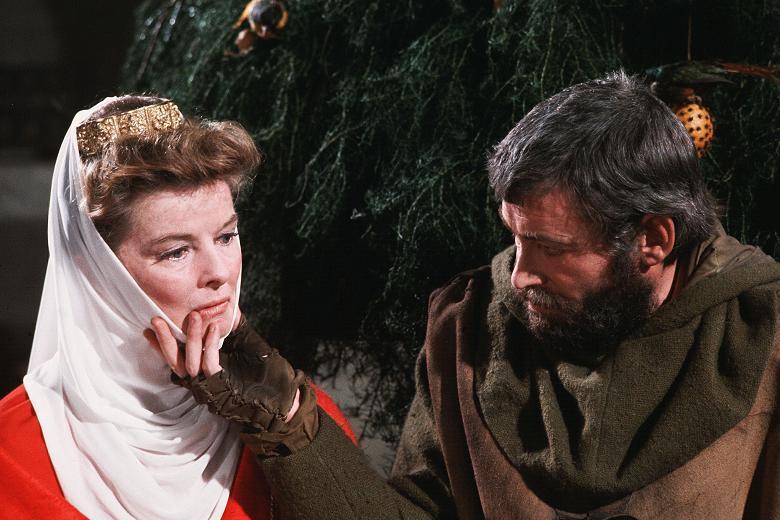
Peter O’Toole, Katherine Hepburn, a young Anthony Hopkins and Timothy Dalton – need I say more? This under-appreciated gem of a film features one of O’Toole’s best performances and a daringly unique performance by Katherine Hepburn. A recipient of 3 Oscars, this film is a period drama about the life and court struggles of King Henry II of England. The most fascinating aspect of the film is that it almost feels like a play; elaborate, intensely dramatic and exploring several layers of the characters. Also, watch out for a moving performance by the then-young Hopkins.
7. Pierrot le Fou (1965)
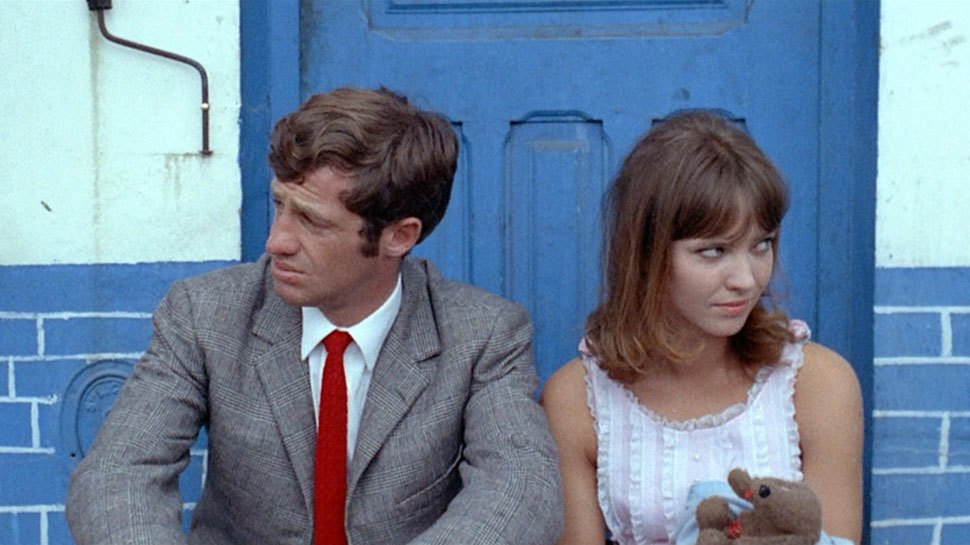
Vehemently hating a film upon first viewing is a classic Godard syndrome. And that is exactly what I went through when I first saw ‘Pierrot le Fou’. It infuriated me in ways I couldn’t even begin to express. I could see a template Godard story, a few cultural references to American cinema, Vietnam and some of Godard’s own philosophy on life, politics and relationships. It was an incredibly provocative experience. But, like it happened with ‘Breathless’, there was something about the film that I couldn’t stop thinking about. Godard’s films have this ability to get into your skull, and you just cannot get rid of it. One of my friends said that Godard was like that bully in school; you hated him, but just couldn’t ignore him.
‘Pierrot le Fou’ is easily one of the most stylish films I’ve ever seen. The visuals are astonishing, and the performances reckless and beautiful. But above all, it’s that angry, rebellious attitude that pervades the film that makes it so special and tempts you to go back to it every time you think about it. Godard kept on experimenting with narrative techniques, cinematography and various other cinematic aspects throughout the 60s, producing some of the most revered works of all time. And ‘Pierrot Le Fou’ is, without a doubt, one of the greatest films he made during that period.
Read More: Best 80s Movies on Netflix
8. Vivre Sa Vie (1962)
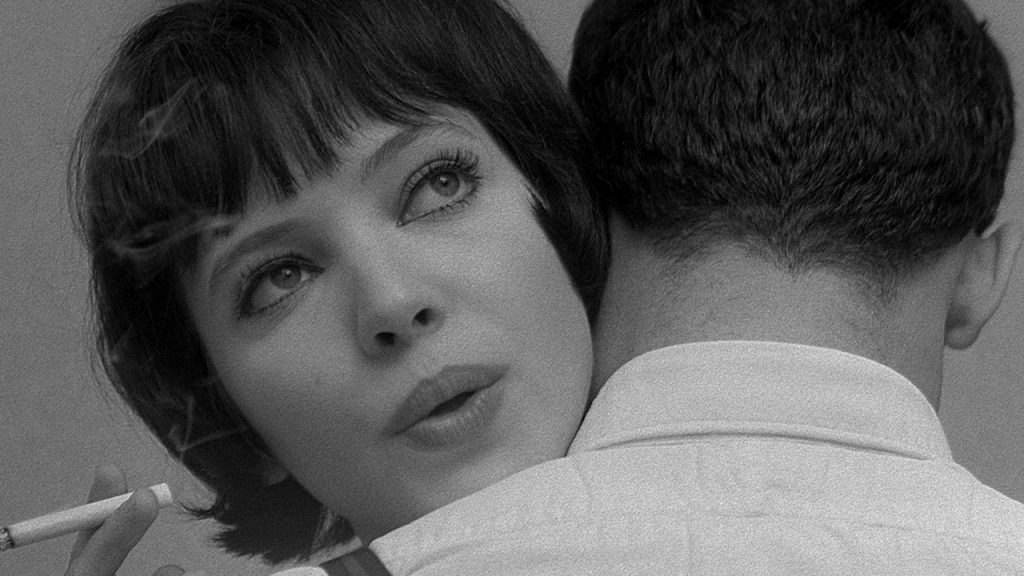
Widely regarded as one of Godard’s most ”accessible” works, ‘Vivre Sa Vie’ tells a simple story of a young woman who aspires to become an actress. However, poverty and other personal issues force her to choose the dreaded path of prostitution and her dreams soon crumble. She later meets a kind man who cares about her, giving her some hope in life, but she is unable to free herself from the clutches of her pimp. The film is quite simply a devastating experience. It’s a slap on the face of those who believed Godard could never come up with something genuinely emotional.
‘Vivre Sa Vie’ forces us to confront a reality that we’d like to look way from. Godard’s approach here is brutally honest. When Nana is shot in the final scene and falls to the ground, the other two crooks flee the scene, and the camera intensely focuses on her body, lying all alone on the road. It is one of the most heartbreaking scenes I’ve seen in films. Like all Godard films, there is a distinctive style that defines the movie. The visuals are exquisite and there are several images in the film that stay in our minds. The above image where Nana smokes while laying her head on a man’s shoulder is unarguably one of the most iconic images in cinema.
Once again, the central performance is unforgettable. Anna Karina is heartbreaking as a young, beautiful Parisian woman whose dreams are brutally crushed by the cruel hands of destiny. She manages to evoke a plethora of emotions in us, and that alone is a testament to her brilliant acting abilities. Godard would later go on to direct far more ambitious and bolder works, but ‘Vivre Sa Vie’ will forever remain my favourite film of his.
Read More: Best Movies of the 80s
9. 2001: A Space Odyssey (1968)
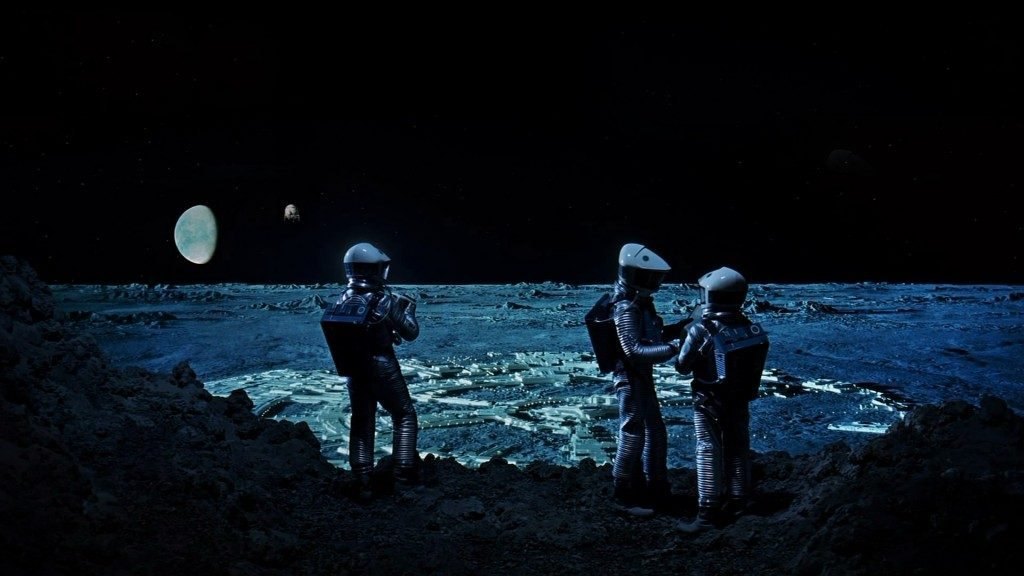
I don’t think many would argue if I say that ‘2001: A Space Odyssey’ is the greatest film of the 60s. But it might seem a little unfair to the other great films of that period, which is also why this list hasn’t been ranked. ‘2001: A Space Odyssey’ is revolutionary in ways more than one. Prior to the film, Stanley Kubrick had already established himself as a director, with films like ‘Lolita’, ‘Paths of Glory’, and ‘Dr. Strangelove’. But it was in ‘2001: A Space Odyssey’ that the master filmmaker ultimately managed to realize his true vision as a filmmaker. Though it may seem like a space/sci-fi movie, it is very difficult to categorize it, because it explores a number of themes, including human existence, evolution, meaning and purpose of life, God, faith, and technology.
Several cinephiles find the film too cold, and that is understandable. But then that’s exactly the reason why the film works on many levels. It doesn’t have a story as such, and that lets Kubrick explore the infinite philosophical possibilities of the film. ‘2001: A Space Odyssey’ is not just a film; it’s an experience you can never truly forget. Of course, there are countless theories and interpretations made by experts, cinephiles and critics across the world, but it is impossible to come up with a concrete explanation for the events in the film. And that is the mark of a truly brilliant work of art.
Read More: Best Movies of the 1970s
10. L’Avventura (1960)
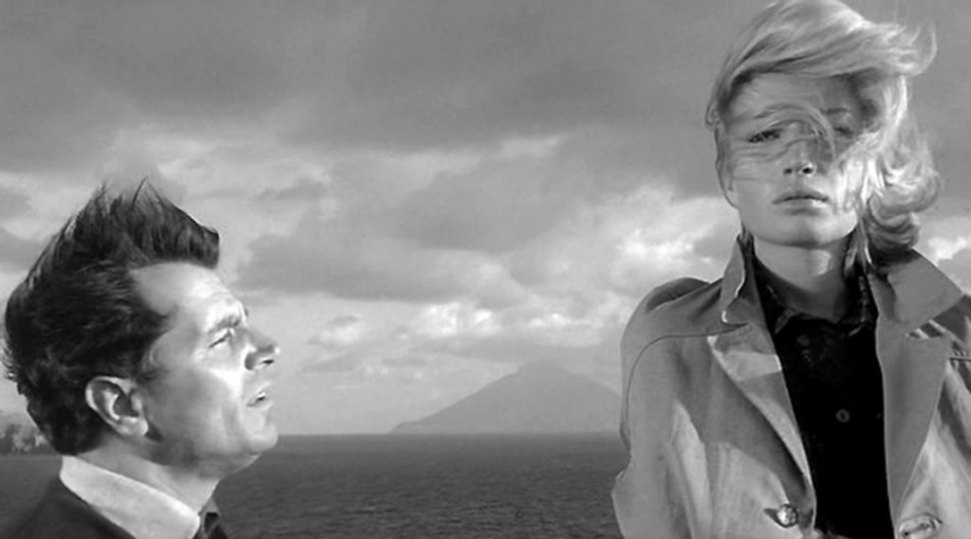
Michelangelo Antonioni‘s ‘L’Avventura’ is like a powerful wind that blows you away, whispering devastating secrets that you’d never want to hear. On the surface, the film may seem like a conventional mystery drama, but it’s a lot more than what any genre could ever define. The story is about a woman, while on a trip to an island with her best friend and boyfriend, goes missing. Things slowly get more complex as the boyfriend and the missing woman’s best friend find themselves attracted to each other. And soon, we realize that the film isn’t about the disappearance of the woman or the mystery surrounding it.
‘L’Avventura’ was booed by the audience at Cannes in 1960. But with time, the film found an audience and it would soon go on to be regarded as one of the greatest films ever made. Antonioni’s cinema has been an exploration of ennui, and this film is arguably the best example of that. That sense of isolation and romantic longing is almost palpable. The gorgeous Monica Vitti exquisitely portrays Claudia and her performance is, without a doubt, one of the highlights of the film. It’s a difficult movie to like and you need to have some patience in order to sit through the whole film, but I can guarantee that it is quite a rewarding experience.
Read More: Best Movies of the 1990s


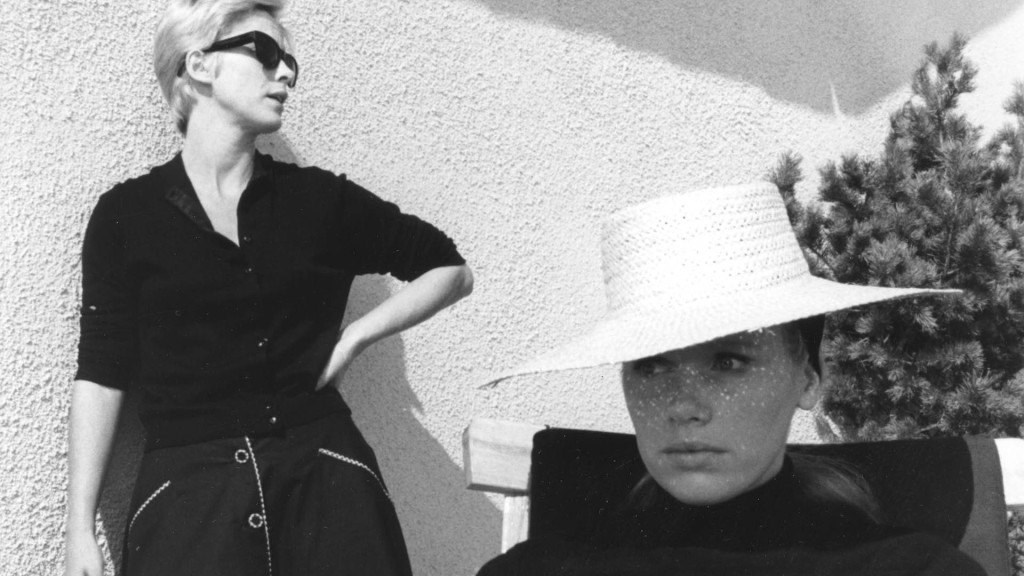
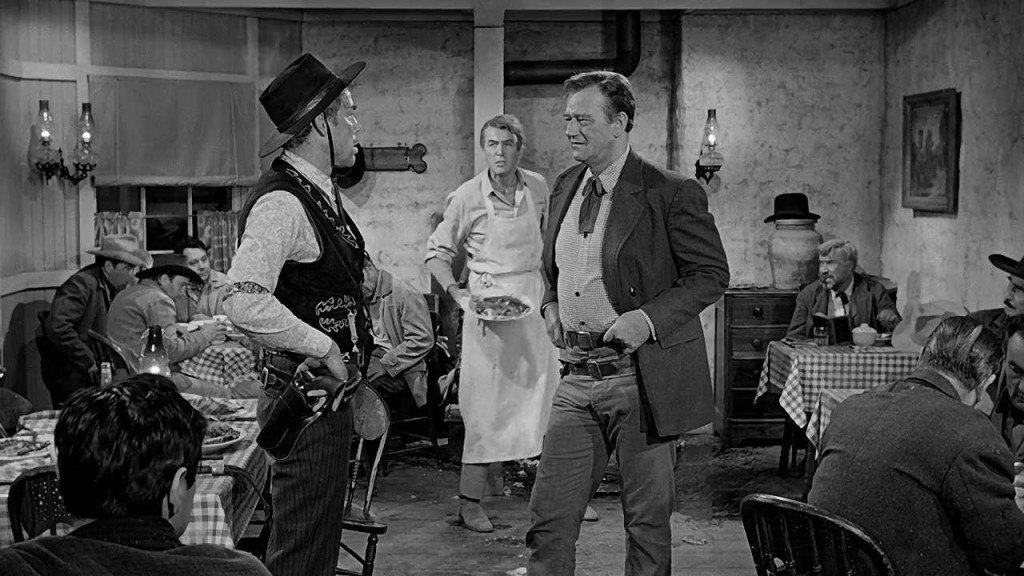
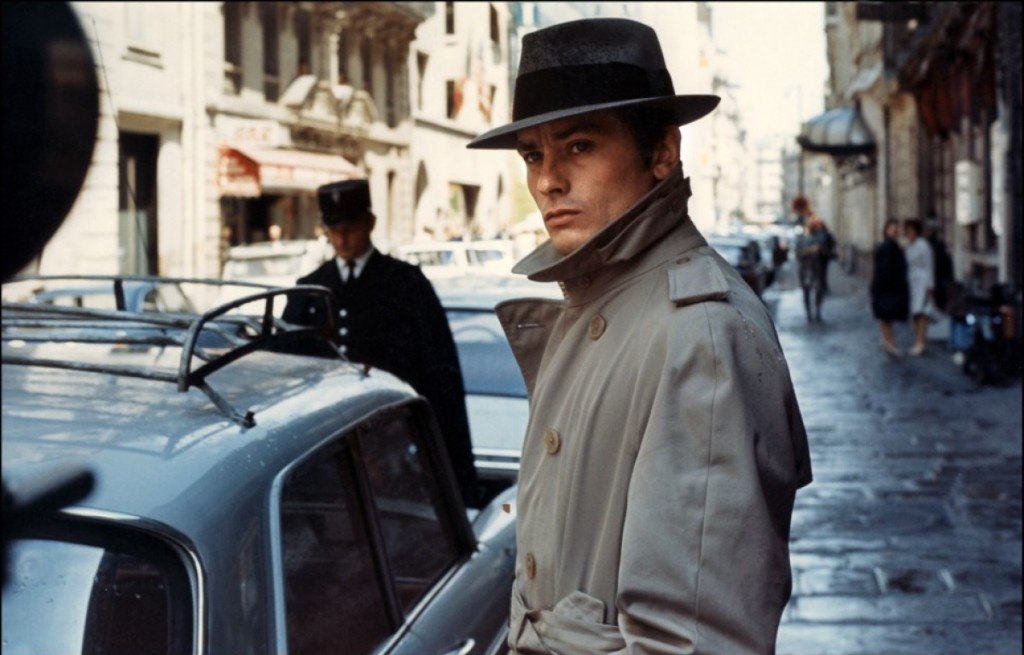
You must be logged in to post a comment.